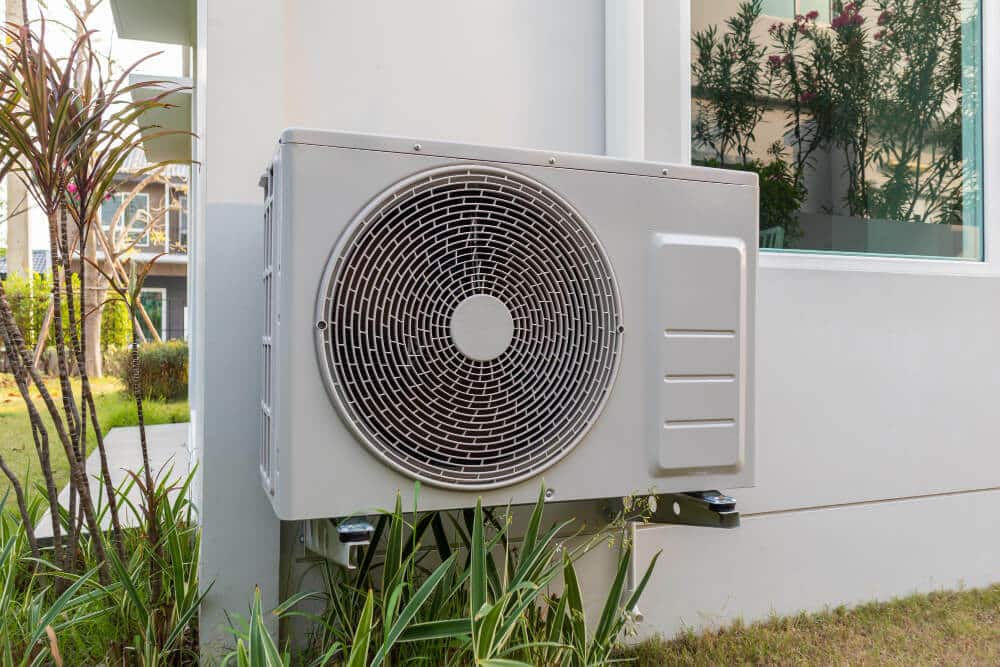Spring brings a sense of renewal, with nature blooming back to life and temperatures gradually climbing. However, along with the promise of warmer days, many homeowners face a common challenge: inefficient cooling in their air conditioning (AC) systems. As the weather transitions, various factors come into play, affecting the performance of AC units. In this comprehensive guide, we delve deep into the intricate web of elements that contribute to inefficient cooling during the spring and offer actionable insights to tackle them effectively.
Temperature Fluctuations: The Core Challenge for AC Systems
Analyzing the Impact of Temperature Variability on Air Conditioning Efficiency

Spring is characterized by fluctuating temperatures, presenting a unique challenge for AC systems. While warmer days hint at the summer heat to come, cooler nights can create a seesaw effect on indoor temperatures. This constant shift puts additional strain on AC units, as they struggle to maintain consistent cooling levels. The resulting workload can lead to inefficiencies, as the system grapples to adapt to the changing climate dynamics.
The Role of Clogged Filters in Hindering Cooling Performance
Investigating the Detrimental Effects of Blocked Filters on Air Conditioning Systems
One of the most common culprits behind inefficient cooling is clogged filters. Over time, filters accumulate dust, debris, and allergens, obstructing airflow and impeding the unit’s ability to cool effectively. During spring, when pollen and other airborne particles are abundant, filters are particularly vulnerable to rapid clogging. Regular filter maintenance is essential to prevent airflow restrictions and ensure optimal AC performance throughout the season.
Refrigerant Leaks: A Silent Saboteur of AC Efficiency
Exposing the Stealthy Threat Posed by Refrigerant Leaks in Air Conditioning Units
Refrigerant leaks pose a significant threat to AC efficiency, especially during the spring when temperatures rise. As the mercury climbs, the pressure within the system increases, making it more susceptible to leaks. Even minor leaks can result in a gradual loss of refrigerant, compromising the unit’s cooling capacity over time. Detecting and repairing leaks promptly is crucial for preserving AC efficiency and preventing further damage to the system.
The Critical Role of Insulation in Sustaining Cooling Efficiency
Emphasizing the Importance of Adequate Insulation for Air Conditioning Performance
Proper insulation is paramount for maintaining cooling efficiency, particularly during the transition to spring. Inadequate insulation can lead to energy loss, as cool air escapes from the home while warm air infiltrates from outside. This not only places added strain on the AC system but also drives up energy consumption and utility costs. Ensuring that your home is adequately insulated can significantly improve AC performance and enhance overall energy efficiency.

Neglected Maintenance: A Recipe for AC Inefficiency
Unraveling the Consequences of Deferred Maintenance on Air Conditioning Systems
Neglected maintenance is a leading cause of inefficient cooling in AC systems. Over time, components wear out, belts loosen, and connections deteriorate, compromising the unit’s performance. Regular maintenance tasks, including cleaning, lubrication, and component inspection, are essential for identifying and addressing potential issues before they escalate. By staying proactive with maintenance, homeowners can ensure that their AC systems operate efficiently year-round.
Optimizing AC Performance: Strategies for Spring and Beyond
Implementing Practical Measures to Enhance Air Conditioning Efficiency
Efficient cooling in AC systems during the spring requires a proactive approach to address the diverse array of factors influencing performance. Regular filter replacement, prompt leak detection, adequate insulation, and scheduled maintenance are key strategies for optimizing AC efficiency. Additionally, homeowners can leverage smart thermostats and energy-efficient practices to further enhance cooling performance while minimizing energy consumption. By adopting a holistic approach to AC maintenance and operation, homeowners can enjoy consistent comfort and lower energy bills throughout the spring and beyond.

Conclusion
Inefficient cooling in AC systems during the spring can be attributed to a myriad of factors, including temperature fluctuations, clogged filters, refrigerant leaks, inadequate insulation, and neglected maintenance. However, by understanding these challenges and implementing proactive measures to address them, homeowners can unlock the secrets to optimal AC performance. With regular maintenance, proper insulation, and energy-efficient practices, homeowners can ensure that their AC systems operate at peak efficiency, keeping indoor spaces cool and comfortable even as the temperature rises outside.






GIPHY App Key not set. Please check settings